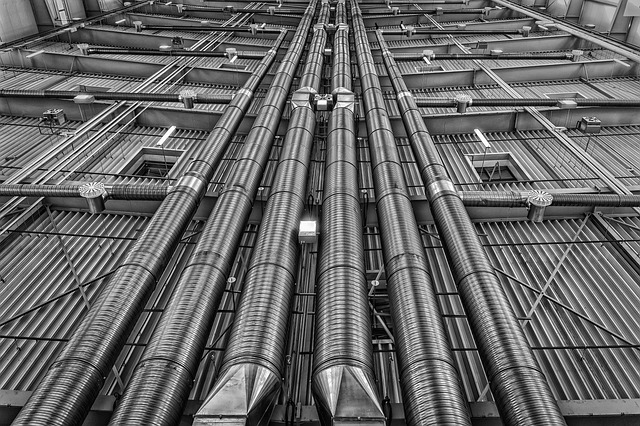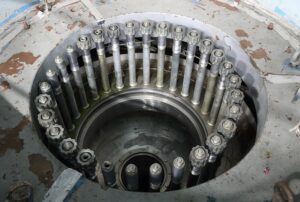Commercial gas fired water heaters cater to diverse business needs, offering tanked and tankless options for restaurants, hotels, hospitals, and schools. Modern models prioritize safety and efficiency through advanced features like automatic shut-off valves, precise temperature controls, and energy-efficient technologies. Strict regulations and energy standards govern their installation and operation, emphasizing ventilation, ignition controls, and leak detection. High-efficiency models with modulating burners optimize energy utilization, while proper installation, maintenance, and strategic control strategies reduce costs and waste, meeting industrial hot water demands sustainably.
In the realm of commercial heating solutions, gas-fired water heaters play a pivotal role in providing hot water efficiently. This article delves into the crucial aspects of selecting and maintaining commercial gas fired water heaters that adhere to safety and efficiency codes. Understanding these codes is essential for business owners aiming to avoid hazards and reduce energy costs. We explore relevant regulations, efficiency best practices, and key factors to ensure a safe and sustainable heating system.
- Understanding Commercial Gas-Fired Water Heaters
- Safety Codes and Regulations for Compliance
- Efficiency Considerations and Best Practices
Understanding Commercial Gas-Fired Water Heaters

Commercial gas-fired water heaters are designed to meet the demanding hot water needs of various businesses, from restaurants and hotels to institutions like hospitals and schools. These systems come in two main types: tanked and tankless. Storage water heaters, with their large tanks, provide a reliable source of hot water for high capacity applications while saving energy through standby heat retention. Tankless water heaters, on the other hand, offer endless hot water without storage, making them ideal for commercial kitchens and institutions with peak demand periods.
Understanding the intricacies of these gas fired systems is crucial for businesses looking to comply with safety and efficiency codes. Modern commercial gas heaters are equipped with advanced features like automatic shut-off valves, pressure relief mechanisms, and precise temperature controls to ensure safe operation. Additionally, they often incorporate energy-efficient technologies such as condensing combustion, which improves performance and reduces environmental impact, aligning perfectly with sustainability goals for institutional water heating applications.
Safety Codes and Regulations for Compliance

When it comes to commercial gas-fired water heaters, safety is paramount. Businesses and institutions operating in the hospitality, restaurant, and institutional sectors must adhere to stringent local, state, and federal codes and regulations to ensure the safe installation and operation of these essential systems. These safety standards encompass a wide range, from proper ventilation and exhaust systems to intricate ignition controls and leak detection mechanisms. Compliance with these regulations is not just about avoiding legal penalties; it’s crucial for preventing accidents, protecting lives, and maintaining a responsible business image.
In addition to safety, efficiency is another key consideration. Commercial gas fired water heaters, including high-capacity tanks and tankless models, must meet strict energy efficiency standards. This involves advanced heating elements, insulated tanks, and smart controls that optimize temperature regulation and minimize energy waste. For businesses looking to reduce operational costs and their environmental footprint, investing in efficient commercial water heating solutions powered by gas is a strategic decision that pays dividends over time.
Efficiency Considerations and Best Practices

When considering commercial gas-fired water heaters, efficiency is a key performance indicator. Opting for high-efficiency models with advanced combustion technology ensures minimal energy waste and reduces operational costs over time. Modern gas fired systems incorporate features like modulating burners, which adjust output based on demand, optimizing energy utilization. This is especially beneficial in applications like restaurant water heating or hotel hot water systems where peak and off-peak usage patterns vary significantly.
Best practices for efficient commercial water heating include proper installation, regular maintenance, and smart control strategies. Using tankless water heaters or storage water heaters tailored to the specific capacity requirements of institutional water heating can substantially improve energy efficiency. Additionally, implementing programable thermostats and optimizing hot water circulation systems contribute to overall system performance. These measures ensure that your commercial gas heaters meet safety standards while delivering high-capacity hot water when needed, making them ideal solutions for demanding industrial hot water applications.
When selecting a commercial gas-fired water heater, prioritizing safety and efficiency is paramount. By understanding relevant codes, adhering to strict regulations, and implementing best practices, businesses can ensure optimal performance while minimizing risks. Investing in compliant heaters not only protects against potential hazards but also leads to long-term cost savings. Thus, for any establishment seeking reliable hot water solutions, commercial gas fired water heaters offer a safe and efficient path forward.
